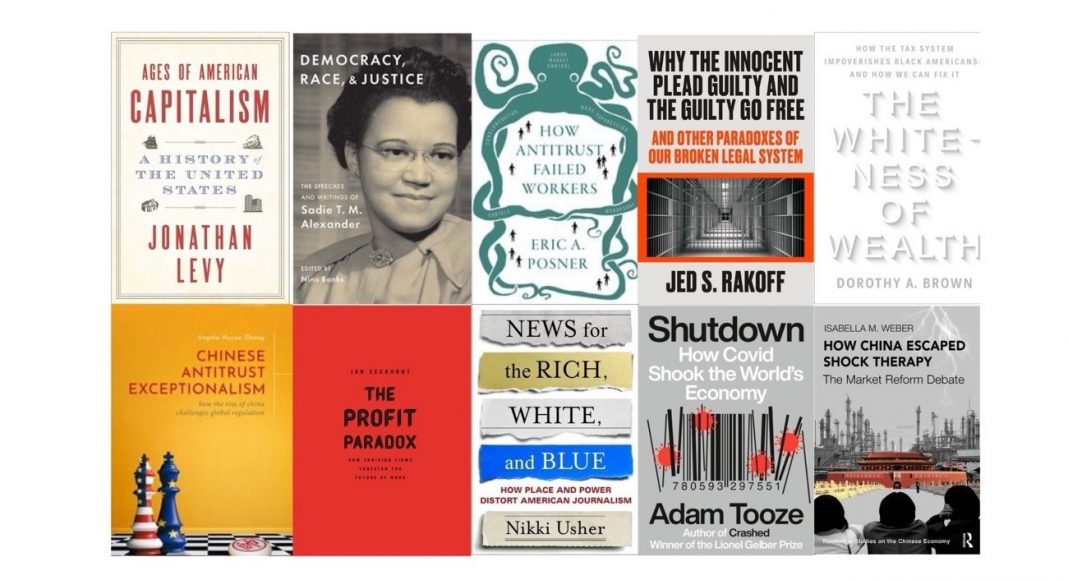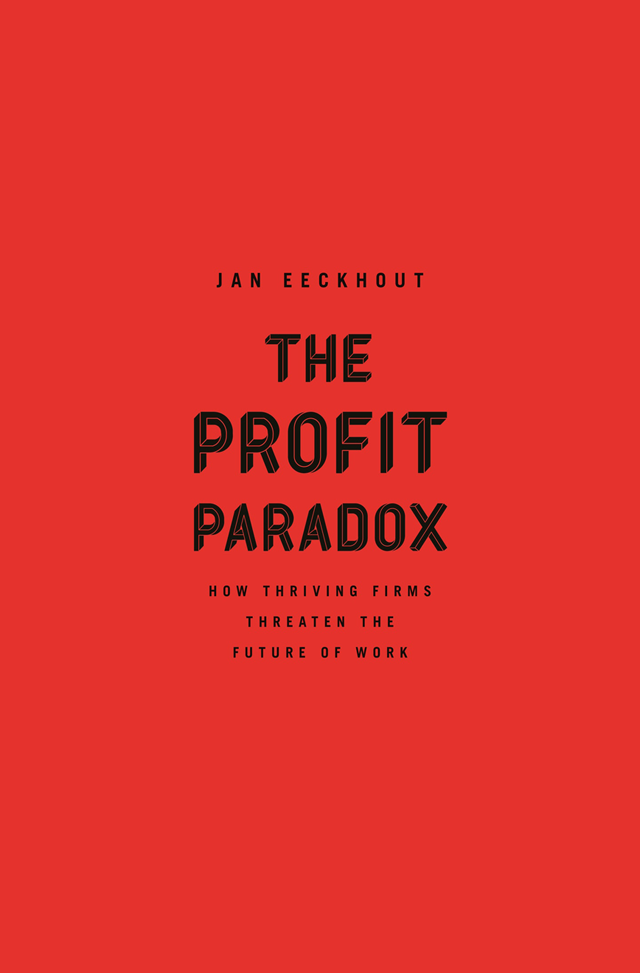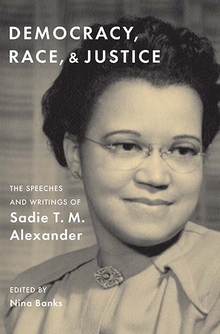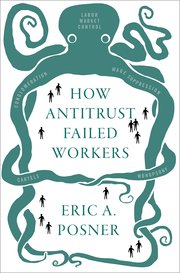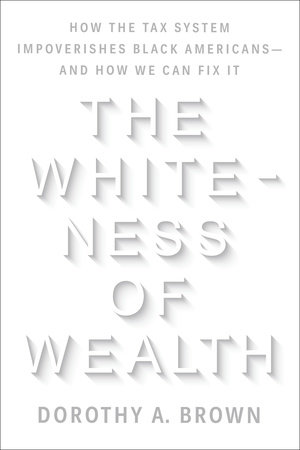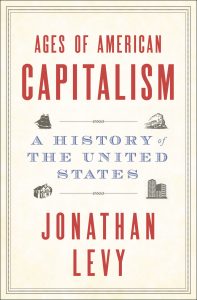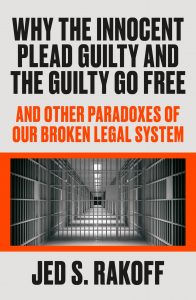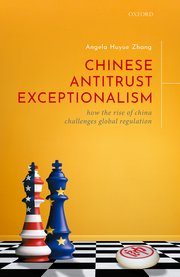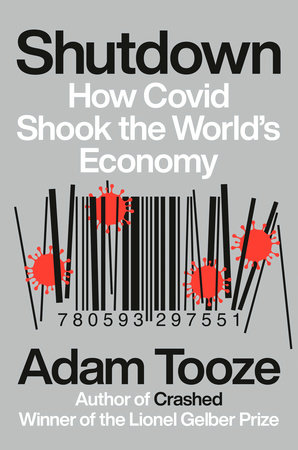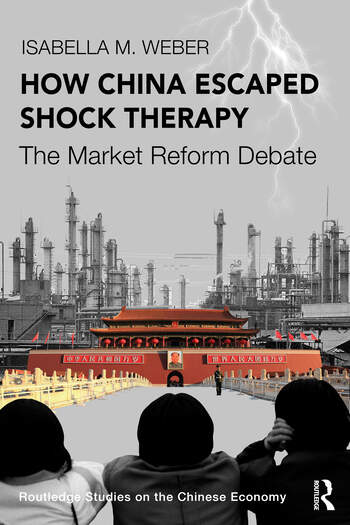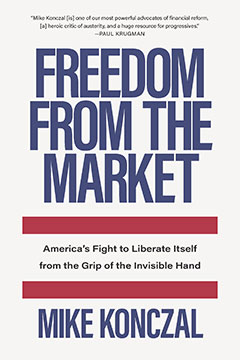A scholarly examination of market’s power toll on American workers, the collected works of a pioneering economic thinker, an ambitious narrative of US economic history, a first-hand account of how the American justice system is failing, and China’s antitrust exceptionalism: here are (in no particular order) some of the best books published during the past year.
The Profit Paradox: How Thriving Firms Threaten the Future of Work by Jan Eeckhout
The last four decades have not been kind to American workers. The labor share—the part of national income that’s allocated to wages—has significantly declined, and wages have stagnated since the 1980s, except at the very top. In theory, this shouldn’t have happened, as corporate profits have been soaring to record highs during the same period, and technological advancements made workers ever more productive. So how did we end up here? Eeckhout, a professor at Pompeu Fabra University in Barcelona, argues that technological progress has made it easy for large corporations to accrue market power and use it to set higher prices on anything from cat food to medicine, reaping record profits and leaving workers to deal with reduced demand for labor and lower wages. Eeckhout calls this the Profit Paradox: what is good for firms is not necessarily good for workers. His book combines remarkable economic scholarship with an engaging, fluent prose style that lays out the toll of market power in a clear and concise manner. (Read our interview with Eeckhout here and Simcha Barkai’s review of the book here; also, listen to Luigi Zingales and Bethany McLean discuss his proposals in an episode of Capitalisn’t.)
Democracy, Race, and Justice: The Speeches and Writings of Sadie T. M. Alexander by Sadie T. M. Alexander (edited by Nina Banks)
In 1921, Sadie Tanner Mossell Alexander became the first African American to receive a PhD in economics. A brilliant student, she was unable to find work as an economist due to racial and gender discrimination. Instead, Alexander became an accomplished and influential lawyer and public intellectual who served as a member of two presidential committees. Despite being denied entry into the field, and with her economic contributions largely forgotten, Alexander nevertheless continued to write about economic issues, particularly the causes and ramifications of racial inequality, and to advocate for ways to bridge America’s racial and economic divides, in particular full employment job guarantees. Nina Banks, associate professor of economics and an affiliated faculty member in Women’s and Gender Studies and in Africana Studies at Bucknell University, has collected Alexander’s speeches and economic writings into a single volume, for the first time ever. The result is a work of astonishing historical scholarship, one that restores Alexander to her rightful place as a pioneering and prescient economic and social thinker. (Read our interview with Banks here).
How Antitrust Failed Workers by Eric A. Posner
As mounting evidence points to the negative effects of labor market power on wages, worker mobility, and inequality, a growing number of voices point to the role that antitrust law has played in allowing labor markets to become so concentrated. In his timely and important book, University of Chicago law professor Eric Posner provides a comprehensive account of antitrust’s failure to address employer consolidation and various anticompetitive methods to suppress wages. While antitrust law is often used to combat anticompetitive mergers and conduct in product markets, argues Posner, it has rarely been used to restrain monopsonists and cartels in the labor market, thus fostering the current power imbalance between workers and employers. (You can read Posner’s piece on antitrust’s labor market problem, part of our ongoing labor and antitrust series, here; listen to Posner’s interview on Capitalisn’t here).
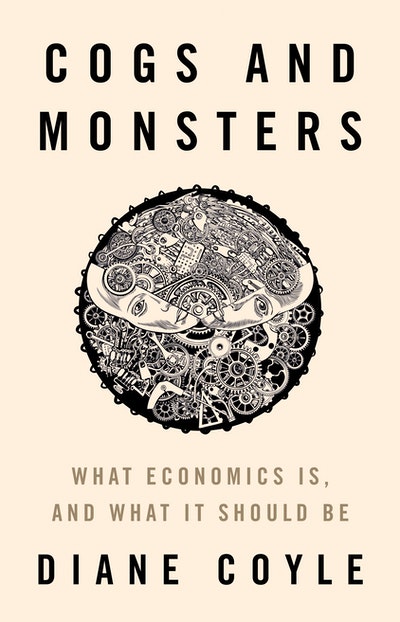
Cogs and Monsters: What Economics Is, and What It Should Be by Diane Coyle
Economics has never been more influential; it has also never been more widely criticized, as calls for reform increasingly come from within the field itself. But many contemporary critiques of economics, argues Cambridge economist Diane Coyle, tend to revolve around what she calls “straw men” arguments—ones that ignore “welcome changes in economics and the way it is taught”—rather than on the substantive issues that practitioners of the “dismal science” need to address. Namely, economists’ assumption that people are “self-interested individuals” interacting as “independent, calculating agents in defined contexts” (hence, cogs) and their inability to grapple with the realities of the “snowballing, socially-influenced, untethered phenomena of the digital economy” (the “monsters”), as well as the field’s lack of diversity. In a year filled with engrossing, provocative attempts to provide a road map for the future of the profession, Coyle’s book stands out as a particularly absorbing read. (Read our interview with Coyle here).
The Whiteness of Wealth: How the Tax System Impoverishes Black Americans—and How We Can Fix It by Dorothy A. Brown
In this groundbreaking exploration of systemic racism, Emory University law professor Dorothy A. Brown shows how steeped in racial biases the American tax system really is. The US tax code, Brown argues, rewards white Americans while disadvantaging Black Americans—even when they engage in the same activities, whether it’s getting married, filing joint returns, or buying a house. This is no accident, she writes, but the result of decades of lobbying and litigation meant to protect the wealth of white Americans. Building on two decades of cross-disciplinary research by herself and others, The Whiteness of Wealth combines the personal stories of Black Americans struggling to build wealth under the current tax system with an eye-opening review of the existing literature, resulting in a book that is at once a scholarly exploration of how race intersects with policy and a passionate call to arms. (Read Brown’s piece on how US tax policies increase the Black-white racial wealth gap here).
Ages of American Capitalism: A History of the United States by Jonathan Levy
In this vast, 944-page tome, University of Chicago historian Jonathan Levy constructs a captivating narrative of America’s economic history that is reminiscent of Eric Hobsbawm’s work in its scope and ambition. Dividing US economic history into four distinct ages—the Age of Commerce (1660-1860), the Age of Capital (1860-1932), the Age of Control (1932-1980), and the Age of Chaos (1980-present)—Levy seeks to dispel long-standing myths regarding the role of private initiative in fostering America’s economic prosperity. “The profit motive has never been enough to prompt long-term capitalist development,” he writes. Levy’s book is a monumental work of economic history that captures the ever-shifting nature of American capitalism. (Read an excerpt from the book here).
Why the Innocent Plead Guilty and the Guilty Go Free, And Other Paradoxes of Our Broken Legal System by Jed S. Rakoff
The notion that the American justice system is in dire need of reform has been the subject of numerous books and articles in recent years. Rarely, however, has a prominent federal judge issued such a harsh, thorough rebuke of its various “hypocritical pretensions, conundrums, paradoxes, and shortcomings.” Rakoff, a judge in the Southern District of New York known for his clashes with the Securities and Exchange Commission and Wall Street banks over the former’s refusal to go after white-collar crime, offers a first-hand account of how the American justice system is “failing its mission,” routinely imprisoning men of color for nonviolent offenses like drug possession and property theft while allowing corporate executives who commit fraud to get off scot-free. The diagnosis that the US system of justice is broken is “not a realization I came to easily,” he writes, “but my subsequent experience and that of my judicial colleagues too often revealed that our system of justice was seriously flawed, and after a while I thought it my duty to speak out about these deficiencies.” (You can read a piece by Rakoff on prosecuting corporate criminals here).
News for the Rich, White, and Blue: How Place and Power Distort American Journalism by Nikki Usher
Much of the discussion around journalism’s acute, historic crisis tends to focus on the financial adversity faced by newspapers and other legacy media outlets and on the industry’s attempts to develop new business models. In her book, however, University of Illinois at Urbana-Champaign professor Nikki Usher focuses on a different, yet connected crisis: as they shift toward digital subscription models, newspapers in effect largely serve a very particular segment of the population, the one most likely to pay for news—white, affluent liberals. News in America, she argues, is largely produced and consumed by affluent, educated, and mostly-white people who reside in a handful of winner-take-all cities. This, in turn, contributes to the media’s escalating credibility crisis and endangers the long-standing ideal of a press that ensures the survival of American democracy by maintaining an informed and engaged citizenry. Usher’s book is an illuminating, crucial exploration of how journalism came to be defined by American society’s existing geographic, economic, and racial cleavages, and how it can avoid being constricted by its current dependency on place and privilege. (Read our interview with Usher here.)
Chinese Antitrust Exceptionalism: How the Rise of China Challenges Global Regulation by Angela Huyue Zhang
Over the past year, Chinese antitrust enforcers have clamped down on companies charged with antitrust violations and monopolistic behavior, blocking mergers, imposing record fines, and launching far-reaching investigations, particularly against Big Tech companies like Alibaba, Baidu, and Tencent. This shift, a far cry from China’s once-friendly approach to its tech sector, is viewed by some as an attempt to tighten government control of the private sector, but according to Angela Zhang, the Chinese antitrust crackdown should be viewed as part of a larger strategy. “Antitrust first originated as policies designed to correct market failures in Western democracies, but in the hands of the Chinese government, antitrust has become a multi-functional regulatory tool,” Zhang, an associate professor at the Faculty of Law at the University of Hong Kong, writes. Her book, partly based on interviews with Chinese judges and enforcers as well as her own scholarship, sheds light on the complex and puzzling nature of Chinese antitrust at a time when it is often used as a means to influence trade and as an economic weapon. (Read our interview with Zhang here).
Shutdown: How Covid Shook the World’s Economy by Adam Tooze
Shutdown went to press long before the emergence of Delta and Omicron, but as the global economy is once again roiled by another Covid-19 variant, Tooze’s recounting of the pandemic’s first months offers a timely, poignant read. Unlike other accounts of the pandemic, Tooze’s protagonists are not the overwhelmed frontline workers providing care in the face of a once-in-a-century calamity, or the scientists racing against the clock to develop an effective vaccine, but rather the central bankers and government bureaucrats attempting to stymie a massive worldwide financial contagion. The incredible amount of government interventions that followed the emergence of Covid, writes Tooze, signified a profound crisis of neoliberalism. “The idea that the natural envelope of economic activity could be ignored or left to markets to regulate was clearly out of touch with reality. So too was the idea that markets could self-regulate in relation to all conceivable social and economic shocks.” Unlike Tooze’s previous book, a meticulously-researched history of the 2008 financial crisis, Shutdown is a telling of a crisis that is still very much ongoing, and thus obviously has its limitations; yet it offers a penetrating look into the long-term effects of Covid’s economic disruption.
How China Escaped Shock Therapy: The Market Reform Debate by Isabella M. Weber
How did China manage to become a global economic superpower without encountering the social and economic tumults that other formerly socialist countries in Eastern and Central Europe experienced as they opened up their economies? The answer, argues Isabella M. Weber in her comprehensive account of China’s period of economic reform, lies in its gradual adoption of marketization and eschewal of the kind of “shock therapy” policies that led to much chaos and disruption in many post-Soviet economies. Weber, an assistant professor of economics at the University of Massachusetts Amherst, offers an original account of the philosophical differences and internal discussions regarding the relationship between state and market that took place in China during this crucial period of economic reforms and helped shape its idiosyncratic approach to free market capitalism.
Freedom From the Market: America’s Fight to Liberate Itself from the Grip of the Invisible Hand by Mike Konczal
Over the past four decades, writes Mike Konczal, Americans have been taught to believe that unregulated markets represent the ultimate form of freedom. “This narrow, limited view has extended into all parts of our lives, becoming like the air that surrounds us,” he argues. Yet, this view is contrary to American history, which is rife with examples of grassroots and governmental opposition to unregulated capitalism. In this provocative, incisive polemic, Konczal, an economist and director at the Roosevelt Institute, discusses several prominent historical instances in which freedom for Americans meant being free from dependency on market outcomes. “Throughout our history people have demanded limits on the market. And they have explained these demands in terms of preserving and expanding freedom,” he writes.
More Great Books:
- Gabriel Winant’s The Next Shift: The Fall of Industry and the Rise of Health Care in Rust Belt America uses the decline of Pittsburgh’s manufacturing industry as a prism by which to explore how deindustrialization and the decline of the working class contributed to the rise of America’s flawed health care system. (Read an excerpt here).
- This year has seen a number of high-profile books that examined the limits of economics and attempted to offer ways for economists to play a more positive role going forward. Mariana Mazzucato’s Mission Economy: A Moonshot Guide to Changing Capitalism, Steve Keen’s The New Economics: A Manifesto, and Minouche Shafik’s What We Owe Each Other: A New Social Contract stand out as particularly bold examples of challenging entrenched assumptions regarding the nature and purpose of capitalism.
- Anthea Roberts and Nicolas Lamp’s Six Faces of Globalization: Who Wins, Who Loses, and Why It Matters offers a rigorous examination of the prominent narratives regarding globalization and how they were formed. (Read an excerpt here).
- Sheera Frenkel and Cecilia Kang’s An Ugly Truth: Inside Facebook’s Battle for Domination provides a deeply-sourced, intensely-reported investigation into Facebook’s internal decision-making processes and the growing divisions inside the company as it faces the real-world implications of its business model.
- Patrick Radden Keefe’s Empire of Pain: The Secret History of the Sackler Dynasty is not just a portrait of the Sackler family and its role in the opioid epidemic, but also an exploration of how corporate political influence and regulatory capture contributed to the creation of a uniquely American disaster.
- Eswar Prasad’s The Future of Money: How the Digital Revolution Is Transforming Currencies and Finance lays out a unique analysis of how cryptocurrencies will change the financial system and how government regulation will adapt to this new reality.
- Eyal Press’s Dirty Work: Essential Jobs and the Hidden Toll of Inequality in America presents a fascinating discussion of labor and morality through the stories of workers who perform functions that are often necessary but nonetheless morally taxing.





